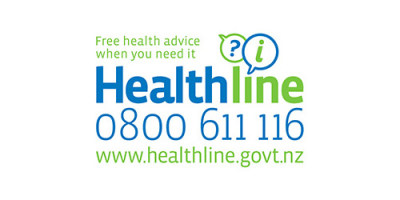Pigeon Valley fires: Public health advice
Public health information for people in the Wakefield, Tasman and Nelson regions affected by the fires.
The Pigeon Valley fires: Public health advice
Updated 25 February by the Nelson Marlborough Public Health Service
Health and well-being advice and services
For people with asthma, bronchitis, emphysema or other lung disease: People with these conditions are at greatest risk associated with exposure to ash or smoke residue. Those with angina or other heart disease might also be affected.
- if you start to develop symptoms use the medicines prescribed to you by your doctor
- if your symptoms worsen and do not respond to their usual measures, call your General Practice or Healthline 0800 611 116
- if you experience breathlessness or chest pain, call 111
Free GP visits for fire-related stress or anxiety:
Free GP visits will continue to be offered for people seeking support for stress or anxiety relating to the fires. Please note: The usual fees for general GP visits (ie not related to stress or anxiety) will apply again from 1 March.
For help getting healthcare: Health navigators from Nelson Bays Primary Health are available to help connect you to health services. The team are available Monday to Friday 8am to 5pm.
- free-phone 0800 627 401
- email [email protected]
Coping with stress and anxiety: Anxiety is very common during an emergency event such as an uncontrolled fire. This is a normal response to a very stressful situation. Talking to people and helping others can be both therapeutic and useful.
If you need further support for yourself or for others:
- call your general practice, after-hours GP practice or Healthline on 0800 611 116
- free-phone or text 1737 to talk to a trained counsellor
- in an emergency, call 111
Mental well-being resources:
1. Mental Health Foundation guide for parents to help their children cope with anxiety: Download the guide here [PDF]
2. Mental Health Foundation guide to help you cope after a natural disaster: Download the guide here [PDF]
3. General guide to coping with anxiety: Download the guide here [PDF]
Free 24-hour helplines
- Plunketline: Information for families, phone 0800 933 922
- Healthline: For an assessment by a nurse, phone 0800 611 116
- Mental health: To speak to a counsellor, phone or text 1737
GPs (medical centres)
i) on weekdays between 8.30am and 5pm, call or visit your usual GP practice
ii) after-hours and on weekends: Find an after-hours GP
For urgent and emergency care
- If your needs are urgent, call or visit the Medical and Injury Centre (Nelson)
- Call 111 for emergencies or go to Nelson Hospital ED for emergencies
Pharmacies: Pharmacists can provide a range of free health advice
Pregnant women: Contact your midwife for support and advice during pregnancy and postnatal period
Vulnerable people: Vulnerable residents/evacuees may not meet the criteria for re-entry – specifically the criteria that they must be able to evacuate promptly again.
Nelson Marlborough Health staff are in regular contact with vulnerable evacuees or their caregivers. People can also contact the Nelson Marlborough Health Needs Assessment Service (Support Works) about this: 0800 244 300
Drinking water contamination information
If you are on a Tasman District Council (TDC) reticulated water supply, and are returning to evacuated areas, the Wakefield, Redwoods and Hope/Brightwater reticulated water supplies are all currently operational.
If you are on a roof water tank supply, any ash and debris that may have been deposited on your roof from the fire should be removed, and the first flush of water following the next rainfall should not be collected. Reconnection of the tank should only occur after the roof area has been checked and cleared.
If material has been washed into the tank in sufficient quantities to affect smell, taste or appearance of rainwater, do not drink the water.
Rainwater in tanks that have not been affected by ash and debris, and has no taint or odour can still be used for normal purposes.
Smoke exposure advice
Smoke from the fire may irritate the eyes, nose, throat and airways. These symptoms will quickly pass after you remove yourself from the smoke, with no long-term consequences.
People with asthma, bronchitis, emphysema or other lung disease are at greatest risk from smoke inhalation. Those with angina or other heart disease might also be more affected. You should avoid exposure if possible. If you have any of these conditions and you are being exposed to smoke you should:
- remain indoors
- close all the windows and doors
- turn off ventilation, air conditioning and heating systems that draw in air from outside until the plume has dispersed or moved away, and you can no longer smell smoke. Most heat pumps will not bring air in from outside when in cooling mode. Check the user manual for more details. Heat pumps and ventilation systems with a HEPA filter can be left on, as the filter will remove most smoke particles
In healthy people, most symptoms will disappear soon after the exposure to smoke has ended, without any long-term consequences.
If you can, get a break away from the smoke by relocating to an area unaffected by the current smoke plume.
People should avoid exercising outdoors while smoke is present.
Dust masks available from hardware stores will only screen out the largest smoke particles, so are unlikely to provide much protection.
General advice
- Please follow the instructions of the emergency services, and keep up to date via the Nelson Tasman Civil Defence website and Facebook pages.
- Please look out for your neighbours, especially the elderly, those in ill-health, and those who live alone
For more information
For the latest The Nelson Tasman Civil Defence news, welfare centres, current evacuation zones, and specific information for returning residents:
- www.nelsontasmancivildefence.co.nz and
- www.facebook.com/nelsontasmancivildefenceandemergencymanagement
The Ministry of Social Development can advise on financial support: 0800 559 009
The Ministry of Primary Industries can advise on animal welfare concerns: 0800 008 333 (option 4)
Stay in touch with your school: Parents are advised by the Ministry of Education to stay in touch with their child’s school via the school website or Facebook page





